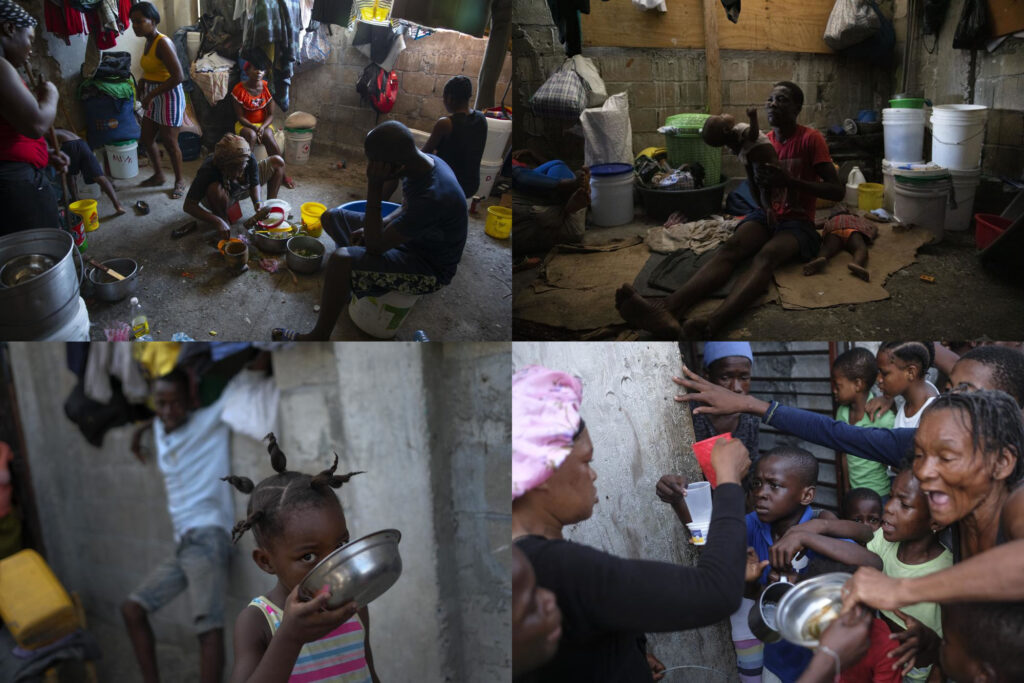PORT-AU-PRINCE — A spike in violence has deepened hunger and poverty in Haiti while hindering the very aid organizations combating those problems in a country whose government struggles to provide basic services.
Few relief workers are willing to speak on the record about the cuts — perhaps worried about drawing attention following the October kidnapping of 17 people from Ohio-based Christian Aid Ministries — 12 of whom remain held hostage.
But several confirmed, without giving details, that they had sent some staff out of the country and have been forced to temporarily cut back aid operations.
Gang-related kidnappings and shootings have prevented aid groups from visiting parts of the capital, Port-au-Prince, and beyond where they had previously distributed food, water and other basic goods.
A severe shortage of fuel also has kept agencies from operating at full capacity.
“It’s just getting worse in every way possible,” said Margarett Lubin, Haiti director for CORE, a U.S. nonprofit organization.
“You see the situation deteriorating day after day, impacting life at every level,” Lubin said, adding that aid organizations have gone into “survival mode.”
Few places in the world are so dependent on aid groups as Haiti, a nation frequently called “the republic of NGOs.” Billions of dollars in aid have been poured through hundreds – by some estimates several thousand – of aid groups even as the government has grown steadily weaker and less effective.
Shortly after the July 7 assassination of the president, Prime Minister Ariel Henry assumed leadership of a country still trying to regain political stability. Nearly all the seats in parliament are vacant and there’s no firm date yet for long-delayed elections, though Henry said he expects them early next year.
Less than a dozen elected officials are currently representing a country of more than 11 million people.
And in the streets, the gangs hold power.
More than 460 kidnappings have been reported by Haiti’s National Police so far this year, more than double what was reported last year, according to the United Nations Integrated Office in Haiti.
The agency said Haitians are “living in hell under the yoke of armed gangs. Rapes, murders, thefts, armed attacks, kidnappings continue to be committed daily, on populations often left to fend for themselves in disadvantaged and marginalized neighborhoods of Port-au-Prince and beyond.”
The agency added: “Without being able to access these areas under the control of gangs, we are far from knowing and measuring the extent of these abuses and what Haitians really experience on a daily basis…
“Humanitarian actors have also limited their interventions due to the security risks to their staff and access challenges,” it added.
Few places in the world are so dependent on aid groups as Haiti, a nation frequently called “the republic of NGOs.” Billions of dollars in aid have been poured through hundreds – by some estimates several thousand – of aid groups even as the government has grown steadily weaker and less effective.
Shortly after the July 7 assassination of the president, Prime Minister Ariel Henry assumed leadership of a country still trying to regain political stability. Nearly all the seats in parliament are vacant and there’s no firm date yet for long-delayed elections, though Henry said he expects them early next year.
Less than a dozen elected officials are currently representing a country of more than 11 million people.
And in the streets, the gangs hold power.
More than 460 kidnappings have been reported by Haiti’s National Police so far this year, more than double what was reported last year, according to the United Nations Integrated Office in Haiti.
The agency said Haitians are “living in hell under the yoke of armed gangs. Rapes, murders, thefts, armed attacks, kidnappings continue to be committed daily, on populations often left to fend for themselves in disadvantaged and marginalized neighborhoods of Port-au-Prince and beyond.”
The agency added: “Without being able to access these areas under the control of gangs, we are far from knowing and measuring the extent of these abuses and what Haitians really experience on a daily basis…
“Humanitarian actors have also limited their interventions due to the security risks to their staff and access challenges,” it added.
By DÁNICA COTO and EVENS SANON/The Associated Press

